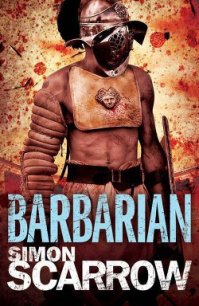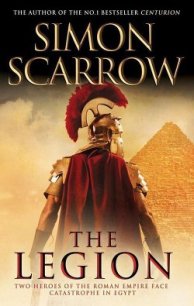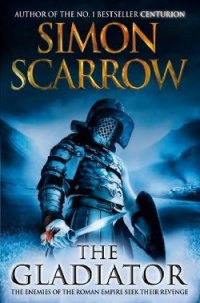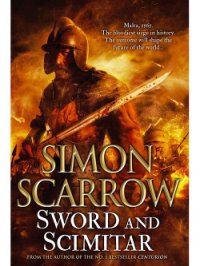The Fields of Death - Scarrow Simon (читаем книги онлайн бесплатно txt) 📗
Soult watched for a moment and then said quietly, ‘I make that no more than four companies, sire. Prince Jйrфme has committed the best part of two divisions so far.’
Napoleon glared at him a moment and then turned his attention back to the battlefield. The smoke from the cannon of both sides was eddying above the landscape in dense clouds, threatening to blot out the view of the surrounding countryside. A sudden anxiety caused him to raise his telescope and sweep the horizon from the south round to the north-east. Fields, farmhouses and small woods glided past the eyepiece, and then a dark shadow just beyond the edge of a treeline caused Napoleon to stop. He blinked his eye and called one of the headquarters staff to stand in front of him so that he could use the man’s shoulder as a rest to steady the telescope. Soult, and a handful of others, had seen his worried expression and now turned in the same direction and scrutinised the dark line that was gradually emerging from the trees.
‘There is a column of soldiers over there,’ Napoleon announced. Then he lowered the telescope and hurried across to the map weighted down on a table outside the inn. He scanned the map and then stabbed his finger down. ‘The woods near Chapelle-St-Lambert.’
Soult exchanged a worried look with the other staff officers gathered about the map. One of them swallowed and asked, ‘Could it be Grouchy? Marching to the sound of the guns?’
Napoleon shook his head. The distant column was coming from the direction of Wavre. ‘Prussians. There is no doubt about it.’
There was a brief silence as the staff officers digested the information and then Soult raised his telescope towards the distant woods and spoke quietly. ‘I can see more columns, sire.’
Napoleon stroked his chin. ‘The Prussians are still two hours’ march from the battlefield. They cannot support Wellington for a while yet. There is time enough to win the day.’
‘And what of Grouchy, sire?’ asked Soult. ‘Shall I send for him?’
‘By all means.’ Napoleon shrugged, as he considered the last known position of Grouchy’s thirty thousand men: advancing towards Wavre from the south.‘Though I fear that he is too far away to intervene, even if he were to wheel towards us at once.’
Nevertheless Soult hurriedly wrote the order and thrust it into the hand of one of his aides. ‘There. Take that to Marshal Grouchy. Tell him that the fate of France in is the balance.’
As the officer swung himself up into his saddle and spurred away Napoleon sighed. ‘The fate of France will be decided by those who are already on the field, Soult.’ Turning his attention back to the ridge in front of the French battle line Napoleon pointed to the stretch of the slope to the right of the Brussels road.‘We cannot delay the main attack any longer. Soult, tell d’Erlon to prepare his corps to advance. It is time to see if these Englishmen you are so afraid of can really stand before our columns.’
Chapter 61
The Ridge of Mont-St-Jean, 1.30 p.m.
The massed guns of the French had been firing for the last half-hour, tearing up the hedge that ran along the road stretching across the ridge. The British skirmishers had lain down and pressed themselves into the earth as roundshot whirred overhead and canister hissed through the rye stalks like a sudden squall. Just in front of the ridge, spread out in line across the slope, were the Dutch soldiers of Bylandt’s brigade. Arthur had not ordered them to withdraw to the reverse slope for fear that Bonaparte might think that the allied centre was retreating, cut short his bombardment and order his infantry forward. The brigade would have to be sacrificed to buy time. Word had reached Arthur that the Prussians had been sighted, but would not reach the battlefield for some hours yet. Arthur’s heart was heavy as he watched the Dutchmen stand their ground and endure terrible punishment as the French guns tore bloody gaps in their ranks again and again.
Beside him, Somerset watched the sickening slaughter and turned to his commander. ‘Your grace, I beg you, allow me to recall Bylandt.’
‘No. They must stand and take it.’
Somerset shook his head. ‘They will not endure it much longer. No men could.’
‘They must. We must snatch at every chance for delay, until Blьcher arrives.’
The French fire began to slacken and in less than a minute the last of the guns had fallen silent.
‘What now?’ Somerset wondered. ‘Cavalry or infantry?’
His question was answered by the faint rattle of drums. Arthur trotted forward towards the large elm tree that grew close to the junction of the Brussels highway and the lesser road running across the ridge. Below, perhaps six hundred yards away, a dense bank of powder smoke obscured the French on the other side of the valley. The surviving British skirmishers were cautiously rising to their feet and peering into the smoke. Behind them the remains of Bylandt’s brigade closed up and advanced ten paces to clear the shattered bodies and limbs of their fallen comrades.
Arthur strained his eyes, trying to penetrate the smoke as the sounds of the French drums drew closer. Then he saw the first of them, dim figures edging through the smoke as the skirmishers advanced ahead of the main columns. As they emerged into clear sight Arthur saw that the line stretched from in front of La Haye Sainte to his right for over half a mile across the battlefield towards the farmhouses of La Haie and Papelotte on the left.
‘This is no feint, Somerset,’ Arthur decided.‘They mean to break our centre at one stroke. From the frontage, I would think Bonaparte is sending three divisions against us.’ He looked to his left, where the men of Picton’s division were standing in battalion columns on the reverse slope. ‘Three to our one. Not good odds.’
‘If Picton breaks, then the enemy will cut our army in two, your grace.’
Arthur nodded, and then gestured towards the cavalry reserve. ‘Ride to Uxbridge. He is to order his cavalry to make ready to charge.’
Somerset wheeled his horse and galloped away and Arthur turned back towards the enemy. There was a steady crackle of muskets as the skirmishers began their one-sided duel. The outnumbered British fired and fell back before the onslaught. Here and there, a red-coated figure was struck down and stumbled out of sight. The French columns continued their inexorable advance: one great mass of men who toiled up the muddy slope towards the ridge. They continued to emerge from the smoke, rank after rank, seemingly without end, and Arthur gazed upon the spectacle with a cold heart. It was a magnificent sight, he thought, more than ten thousand men boldly advancing to do battle. Magnificent, but those fine regiments must be destroyed.
The British artillery crews on the ridge took aim on the French line and opened fire, over the heads of the skirmishers, so that the roundshot plunged down amid the rear ranks, sweeping away files of ten or fifteen men at a time. The air was filled with the crash of cannon and the concussion shook the very air about Arthur. As he sat in his saddle and watched, the allied officers recalled their skirmishers and the men trotted back up to the ridge and through the gaps in the hedge to re-join their regiments. Only Bylandt’s brigade stood before the oncoming mass. The persistent rattle of the drums was accompanied by the cries of the French officers as they urged their men on, and the soldiers cheered for their Emperor in a deafening roar.
The British guns were now firing canister directly into the face of the columns, felling groups of men in an instant, but the gaps closed up and they continued forward relentlessly. At fifty paces, Bylandt gave the order for his men to make ready. Their muskets came up and a moment later the order to fire was lost in the crash of their volley. Directly before them the leading rank shimmered under the impact and men crumpled to the ground. Those following quickened their pace, but before they could close the distance the Dutch troops, shaken by the terrible losses they had already endured, gave way, falling back through the hedge. Their officers did their best to rally them on the far side, and for a moment most of them stayed with their colours and began to reload. There was no attempt to fire a volley and individual soldiers shot at the enemy as soon as their muskets were ready, then turned and fled after their comrades.




